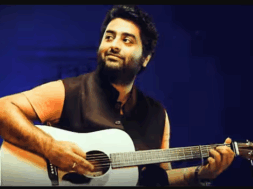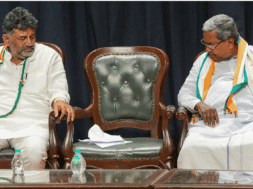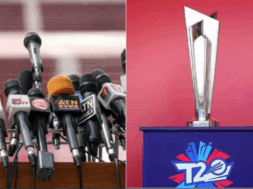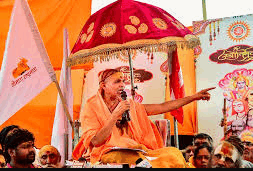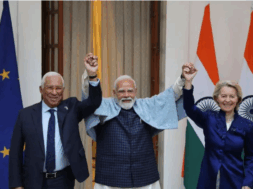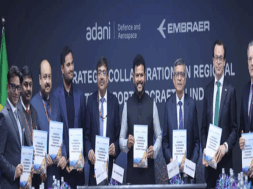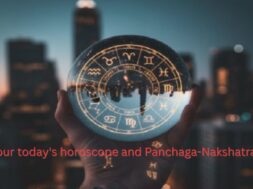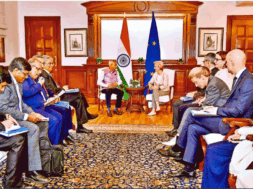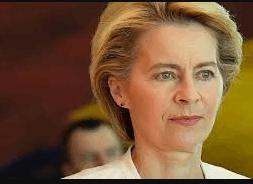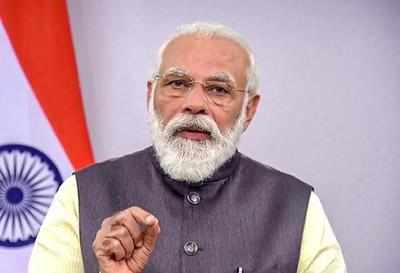
Modi Ask Hard Questions to UN: “How Long Will India Be Kept Out of its Decision-Making Structure?
Manas Dasgupta
NEW DELHI, Sep 26: Asking some hard questions to the world body, the prime minister Narendra Modi on Saturday raised the issue of India’s permanent membership to the United Nations wanting to know how long the largest democracy in the world be kept out of the decision-making structure.
Addressing the UN General Assembly through a 22-minute pre-recorded video message in Hindi this evening, which was broadcast in the UNGA hall in New York, Modi also questioned the world body’s role in facing the Corona pandemic and gave an assurance that India’s pharmaceutical industry and its delivery system would help the world with the vaccine to combat the pandemic.
Reiterating the need for quick reforms in the UN to keep pace with the changing times considering that the world had much changed since the world body was set up in 1945, Modi said, “The people of India have been waiting for a long time for the process for the reforms of the UN to get completed. Today, people of India are concerned whether this reform-process will ever reach its logical conclusion. For how long will India be kept out of the decision-making structures of the United Nations?” Modi asked
Saturday was the fifth day of the UN general assembly debate for 2020 on the theme – ‘The Future We Want, the UN We Need: Reaffirming our Collective Commitment to Multilateralism.’
Congratulating the member nations at 75 years of the UN, Modi said India was proud of the fact that it was one of the Founding Members of the United Nations. “On this historic occasion, I have come to this global platform to share the sentiments of 1.3 billion people of India,” Modi said and raised questions about its reforms process. Stating that the UN needed serious introspection of its working style, Modi said “If we were to make an objective assessment of the performance of UN over the last 75 years, we see several stellar achievements. But at the same time, there are also several instances that point to the need for a serious introspection of the work of the United Nations.”
Pointing out that India would take its seat and perform its responsibilities as an elected non-permanent member of the UN Security Council for two years from January, Modi said the UN need to change its reactions, arrangements and appearance to stay relevant. “Today we are in a different era all together… There is a big question in front of the whole world community that whether the institution that was formed under the circumstances of that time is still relevant today.”
“If we evaluate the achievements of the United Nations in the last 75 years, many achievements are seen.There are also many examples, which raise the need for serious introspection in front of the United Nations,” Modi said. “Reform in the responses, processes and in the very character of the UN is the need of the hour,” he added.
Expressing his strong resentment over the world body’s lack of initiative in meeting the global pandemic situation, Modi said, “Over the last 8 to 9 months, the whole world has been battling the pandemic of the Coronavirus. Where is the United Nations in this joint fight against the pandemic? Where is its effective response?” Modi asked.
Pointing out that the UN shared the same principles of “Vasudaiva Kutumbakam” that India propounded to consider the entire world as one, Modi said India never pushed for expansionist theories. Without naming any other country, the prime minister said If India developed a bilateral relation with another country, it was never intended to target a third country and reiterated that India always stood for peace and prosperity of all the countries. “Any gesture of friendship by India towards one country is not directed against any third country,” Modi said adding, “When India strengthens its development partnership, it is not with any malafide intent of making the partner country dependent or hapless.”
Stressing India’s history, Modi said, “When we were strong, we were never a threat to the world. When we were weak, we never become a burden on the world. How long would a country have to wait particularly when the transformational changes happening in that country affect a large part of the world?” he asked.
Modi said India would focus on the “5 S approach” of samman (respect), samvad (dialogue), sahyog (cooperation), shanti (peace) and samriddhi (prosperity) during its stint as a non-permanent member of the Security Council.
Referring to India’s role in meeting the Corona pandemic, the prime minister said India’s vaccine production and delivery capacity would be utilized for all the humanity and not India alone. “India had never been driven by self-interest and had always worked for others. As the largest vaccine producing country of the world, I want to give one more assurance to the global community today. India’s vaccine production and delivery capacity will be used to help all humanity in fighting this crisis,” Modi said.
“From India’s Neighbourhood First Policy to our Act East Policy, & the idea of Security and Growth for All in the Region, our views towards the Indo Pacific region, we have always worked for interests of humankind & not driven by our own self-interests,” he said. “India has always thought about the interests of the whole humankind and not about its own vested interests. This philosophy has always been the driving force of India’s policies,” he stressed.

